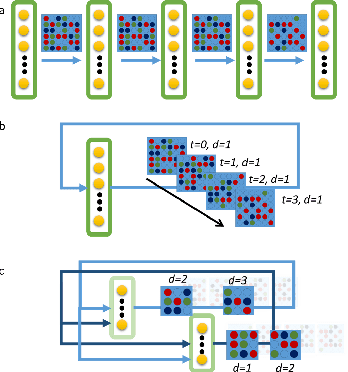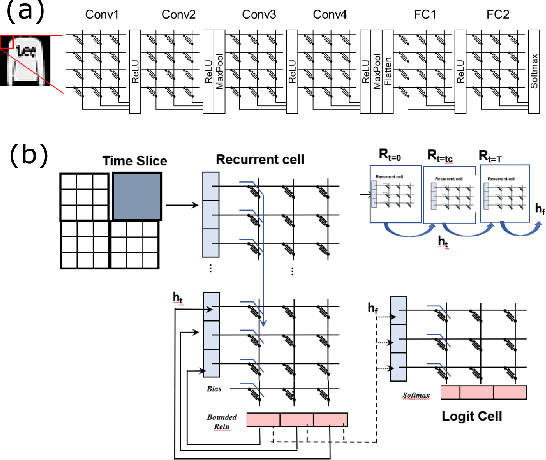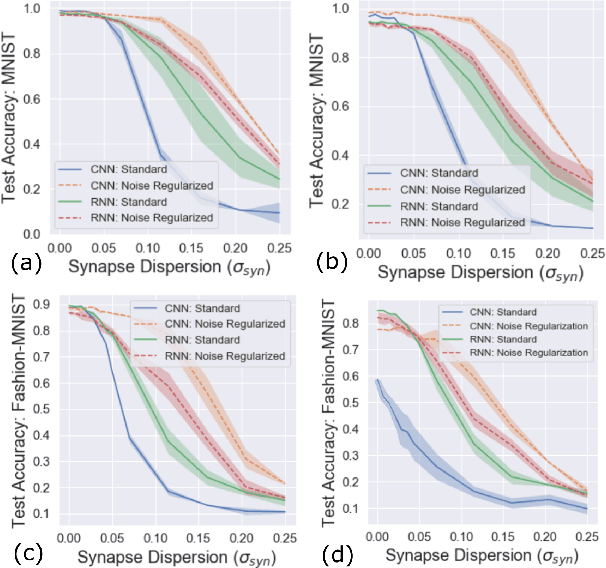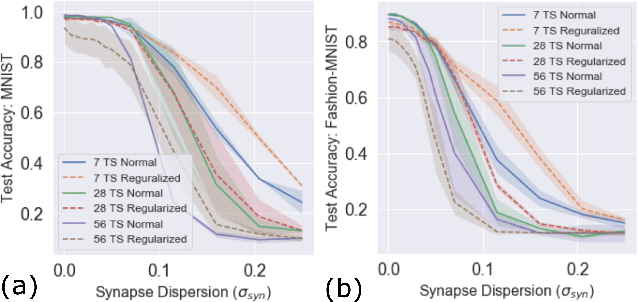Evaluating complexity and resilience trade-offs in emerging memory inference machines
Paper and Code
Feb 25, 2020



Neuromorphic-style inference only works well if limited hardware resources are maximized properly, e.g. accuracy continues to scale with parameters and complexity in the face of potential disturbance. In this work, we use realistic crossbar simulations to highlight that compact implementations of deep neural networks are unexpectedly susceptible to collapse from multiple system disturbances. Our work proposes a middle path towards high performance and strong resilience utilizing the Mosaics framework, and specifically by re-using synaptic connections in a recurrent neural network implementation that possesses a natural form of noise-immunity.
 Add to Chrome
Add to Chrome Add to Firefox
Add to Firefox Add to Edge
Add to Edge